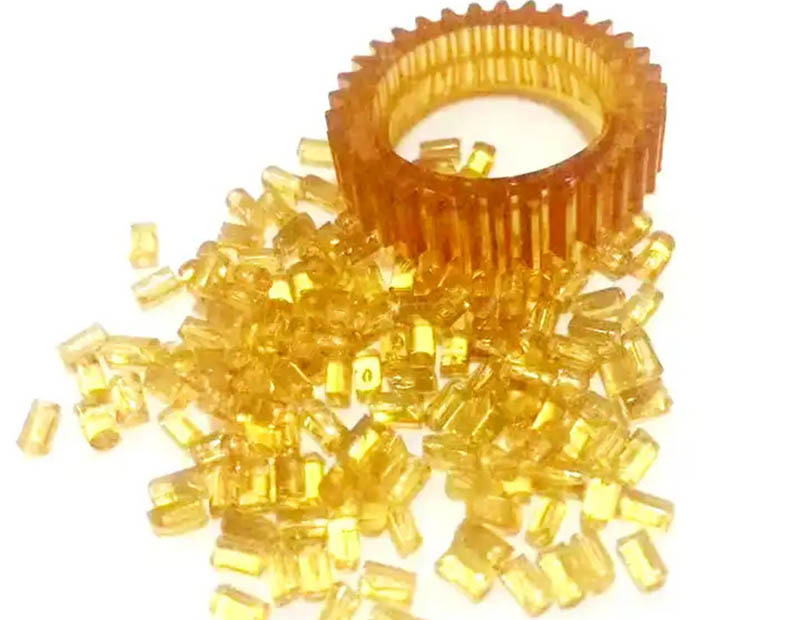
PEI (Polyetherimide) plastic is a high-performance, amber-transparent engineering thermoplastic renowned for its excellent thermal stability, flame retardancy, mechanical strength, and electrical insulation properties. It is an amorphous polymer with low creep and exceptional dimensional stability, making it ideal for components that demand precision and long-term reliability in high-temperature environments.
Our PEI materials are available in resin, sheets, rods, films, and custom-machined parts, tailored to meet a wide range of industrial needs.
High heat resistance: continuous use temperature up to 170°C
Excellent electrical insulation performance at elevated temperatures
Outstanding dimensional stability with minimal thermal expansion
Good resistance to chemicals, including acids and alcohols
Naturally flame retardant without the need for additives (UL94 V-0)
Transparent amber appearance, suitable for optical applications
Easy to process via injection molding, extrusion, and CNC machining
PEI Sheets (standard and custom sizes)
PEI Rods (various diameters)
PEI Films (thin gauge, insulation applications)
PEI Granules (injection/extrusion grade)
Custom-machined PEI parts based on drawings or samples
| Industry | Applications |
|---|---|
| Electronics | Connectors, circuit board holders, insulation parts |
| Aerospace | Lightweight structural components, brackets |
| Automotive | Sensor housings, under-the-hood parts |
| Medical | Sterilizable handles, dental components |
| Industrial | Valves, pump housings, gears |
| Semiconductor | Wafer carriers, plasma chamber components |
| Property | Value |
|---|---|
| Density | 1.27 g/cm³ |
| Glass Transition Temperature | 217°C |
| Continuous Use Temperature | 170°C |
| Tensile Strength | 110 MPa |
| Flexural Modulus | 3200 MPa |
| Dielectric Strength | 18 kV/mm |
| Flammability Rating | UL94 V-0 |
| Water Absorption (24 hrs) | 0.25% |
Note: Properties may vary depending on grade (e.g. unfilled, glass-filled, carbon-filled).
Factory-direct supply with stable inventory and consistent quality
Full range of forms: resin, sheets, rods, films, and custom parts
Professional OEM & CNC machining services available
Global shipping and timely delivery
Technical support for application and material selection
FAQ:
What is PEI plastic?
PEI (polyetherimide) is a high performance thermoplastic with excellent high temperature stability and mechanical properties.
What is the maximum service temperature of PEI plastic?
PEI plastics can be used up to 170°C in the long term.
What are the key benefits of PEI plastics?
The main advantages include high temperature stability, excellent mechanical strength, chemical resistance and low moisture absorption.
In what areas are PEI plastics widely used?
PEI plastics are widely used in aerospace, automotive industry, electronic equipment and medical devices.
How well do PEI plastics tolerate chemicals?
PEI has good resistance to a wide range of chemicals including acids, bases and solvents.
What are the electrical properties of PEI plastics?
PEI has excellent electrical insulation properties for electrical and electronic applications.
What are the main processing methods for PEI plastics?
The main processing methods include injection molding, extrusion and machining.
What do I need to pay attention to when processing PEI plastics?
Due to the high melting point of PEI, processing requires strict temperature control and can be complicated.
What are the main disadvantages of PEI plastics?
The main disadvantages are higher cost and more difficult processing.
What is the hygroscopicity of PEI plastics?
PEI plastics have very low hygroscopicity, which makes them stable in humid environments.